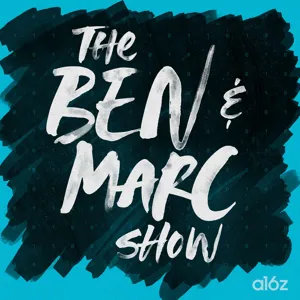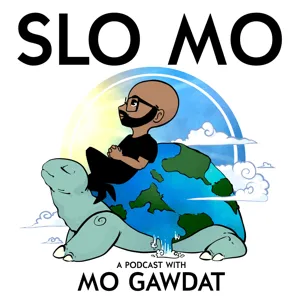What I learned from reading The Unpublished David Ogilvy by David Ogilvy.
----
Get access to the World’s Most Valuable Notebook for Founders by investing in a subscription to Founders Notes
----
[0:01] Will Any Agency Hire This Man? He is 38, and unemployed. He dropped out of college.
He has been a cook, a salesman, a diplomatist and a farmer. He knows nothing about marketing, and has never written any copy. He professes to be interested in advertising as a career (at the age of 38!) and is ready to go to work for $5,000 a year.
I doubt if any American agency will hire him.
However, a London agency did hire him. Three years later he became the most famous copywriter in the world, and in due course built the tenth biggest agency in the world.
The moral: it sometimes pays an agency to be imaginative and unorthodox in hiring.
[2:39] Words were what made him. Reading this collection, one is struck, piece after piece by how David's words surprise and seduce, tease and provoke.
[2:58] His writing is opinionated, forceful, and urgent.
[4:24] David was building his first-class business in a first-class way.
[5:37] Every advertisement must tell the whole sales story.
[5:41] The copy must be human and very simple.Every word in the copy must count. Concrete figures must be substituted for atmospheric claims; clichés must give way to facts, and empty exhortations to alluring offers.
[6:08] Permanent success has rarely been built on frivolity. People do not buy from clowns.
[7:38] The worst fault a salesman can commit is to be a bore.
[11:49] I have a new metaphor. Great hospitals do two things: They look after patients, and they teach young doctors. Ogilvy & Mather does two things: We look after clients, and we teach young advertising people. Ogilvy & Mather is the teaching hospital of the advertising world. And, as such, to be respected above all other agencies.
[12:44] I plead for charm, flair, showmanship, taste, distinction.
[16:42] Dear Ray: Nineteen years ago you wrote me the best job application letter I have ever received. I can still recite the first paragraph. The first paragraph read: "My father was in charge of the men's lavatory at the Ritz Hotel. My mother was a chambermaid at the same hotel. I was educated at the London School of Economics.
[18:04] I find extravagance esthetically repulsive. I find the New England Puritan tradition more attractive. And more profitable.
[21:14] So the time had come to give the pendulum a push in the other direction. If that push has puzzled you, caught you on the wrong foot and confused you, I can only quote Ralph Waldo Emerson: "A foolish consistency is the hobgoblin of little minds... Speak what you think today in words as hard as cannonballs, and tomorrow speak what tomorrow thinks in hard words again, though it contradict everything you said today."
[22:01] I prefer a posture of confident authority.
[22:19] You have a first-class mind. Stretch it.
[22:38] David on how he lasted so long:
1. I have outlived all my competitors.
2. My obsessive interest in advertising has not dimmed.
3. My younger partners have tolerated my presence in their midst.
4. I had the wisdom to give them a free run. As a result, Ogilvy & Mather has outgrown its founder.
[27:02] An account manager wrote to David wondering what he considered his worst shortcomings. The reply:
I am intolerant of mediocrity – and laziness.
I fritter away too much time on things which aren't important.
Like everyone of my age, I talk too much about the past.
I have always funked firing people who needed to be fired.
I am afraid of flying and go to ridiculous lengths to avoid it.
When I was Creative Head in New York, I wrote too much of the advertising myself.
I know nothing about finance.
I change my mind – about advertising and about people.
I am candid to the point of indiscretion.
I see too many sides to every argument.
I am over-impressed by physical beauty.
I have a low threshold of boredom.
[28:09] Somebody recently asked me for a list of the most useful books on advertising – the books that all our people should read. Here is what I sent her:
Scientific Advertising by Claude Hopkins.
Tested Advertising Methods by John Caples.
Confessions of an Advertising Man by David Ogilvy.
How to Advertise by Kenneth Roman and Jane Maas.
Reality in Advertising by Rosser Reeves.
The Art of Writing Advertising : Conversations with Masters of the Craft: David Ogilvy, William Bernbach, Leo Burnett, Rosser Reeves by Denis Higgins.
The 100 Best Advertisements by Julian Watkins.
[29:26] Don't be dull bores. We can't save souls in an empty church.
[31:28] What guts it takes, what obstinate determination, to stick to one coherent creative policy, year after year, in the face of all the pressures to "come up with something new" every six months.
[31:57] The manufacturer who dedicates his advertising to building the most favourable image, the most sharply defined personality, is the one who will get the largest share of the market at the highest profit – in the long run.
[32:05] We try to create sharply defined personalities for our brands. And we stick to those personalities, year after year.
[32:58] Set exorbitant standards, and give your people hell when they don't live up tọ them. There is nothing so demoralizing as a boss who tolerates second-rate work.
[33:57] For Pete's sake write shorter memos. Cut your wordage in half.
[34:12] How does the OBM of 1962 compare with the agency I dreamed of in 1948? To tell you the truth, it looks a million times better than I ever dreamed it could look. I just cannot believe what a good agency this has grown to be. I am terribly proud, and terribly grateful.
[35:07] David is often astonished by working habits that differ from his own. Once, discussing a copywriter at another agency whom he admired in some respects, he said: "Listen to this - every day at precisely five o'clock that man gets up from his desk, puts on his hat and his coat, and goes home." Long pause to let it sink in. Then, leaning forward for emphasis: "Think of the extraordinary self-discipline that requires!"
[36:49] My old friend advised you to avoid excess in all things. Mr. Ashcroft used to say the same thing – avoid excess in all things. That is a recipe for dullness and mediocrity.
[38:09] I will begin with an old-fashioned affirmation in the supreme value of hard work. I believe in the Scottish proverb: “Hard work never killed a man." Men die of boredom, psychological conflict and disease. They never die of hard work.
[38:36] On the other hand, I believe in lots of vacations. Sabbaticals recharge batteries.
[39:18] Are we freewheeling entrepreneurs, ready to take risks in new ventures? Or are we too frightened of making mistakes? When the toy-buyer at Sears made a mistake which cost his company 10 million bucks, I asked the head of Sears, “Are you going to fire him?" “Hell no," he replied, “I fire people who don't make mistakes."
[41:06] It is the duty of our top people to sustain unremitting pressure on the professional standards of their staffs. They must not tolerate sloppy plans or mediocre creative work.
[41:30] If you ever find a man who is better than you are– hire him. If necessary, pay him more than you pay yourself.
[41:56] Five characteristics for rapid promotion
He is ambitious.
He works harder than his peers – and enjoys it.
He has a brilliant brain – inventive and unorthodox.
He has an engaging personality.
He demonstrates respect for the creative function.
[42:56] The line between pride in our work and neurotic obstinacy is a narrow one.
[43:07] We have a habit of divine discontent with our performance. It is an antidote to smugness.
[43:50] Raise your sights! Blaze new trails! Compete with the immortals!
[48:13] Great leaders almost seem to exude self-confidence.
[49:13] Great industrial leaders are always fanatically committed to their jobs. They are not lazy, or amateurs.
[52:00] What would you have done differently if you could do it all over? I wouldn't have made so damn many mistakes, and most notably, I would not have sold so many of my Ogilvy & Mather shares.I was scared. We were being fantastically successful. I kept saying to myself: easy come, easy go. This thing could go up in smoke at any moment. I was frightened and I wanted to get the money out and put it into something safe.
[53:22] Did you ever think the agency was going to fail? Yes. Every day for years I thought it was going to fail. I was always scared sick-always a terrible worrywart when I was in my heyday at the agency. I remember saying one day: If this is success, God deliver me from failure.
[53:47] Personal dislike made me resign many accounts. I didn't like having to deal with the sonofabitch. Why should I? We pass this way only once.
[54:02] Anything you've always wanted that eluded you? A big family. Ten children.
[54:10] Retiring can be fatal.
[56:04] I was talking at my old school not long ago in Scotland and I gave them a little sermon on the subject of success. They should stop thinking about success entirely in terms of material achievements and careers and all that stuff and think of success in terms of their own happiness and the happiness of their family.
[56:45] I had to make my own bed. I was a very, very good salesman. And that's an important thing to be.
[58:22] I had a short period in my life, I think maybe ten years, when I was pretty close to being a genius and I can look back on that with interested curiosity and affection and some nostalgia. Then it ran out. But I was.
----
Get access to the World’s Most Valuable Notebook for Founders by investing in a subscription to Founders Notes
----
“I have listened to every episode released and look forward to every episode that comes out. The only criticism I would have is that after each podcast I usually want to buy the book because I am interested so my poor wallet suffers. ”
— Gareth
Be like Gareth. Buy a book: All the books featured on Founders Podcast





